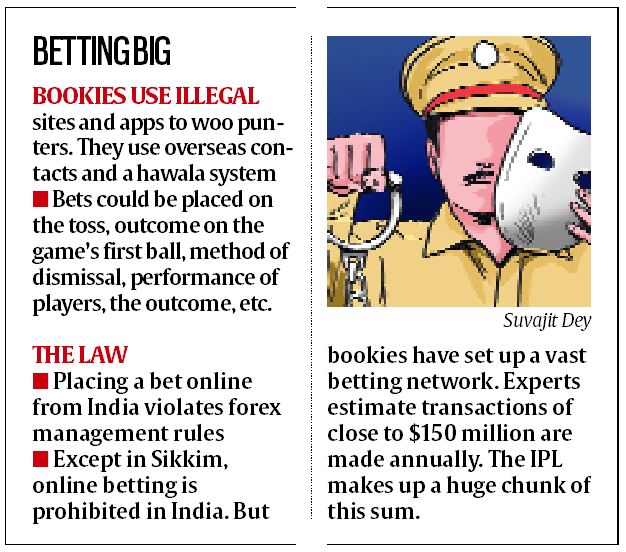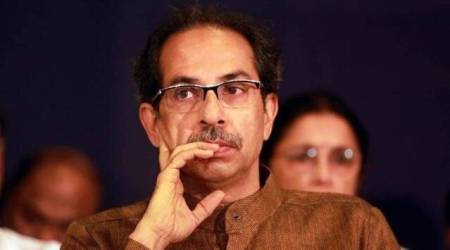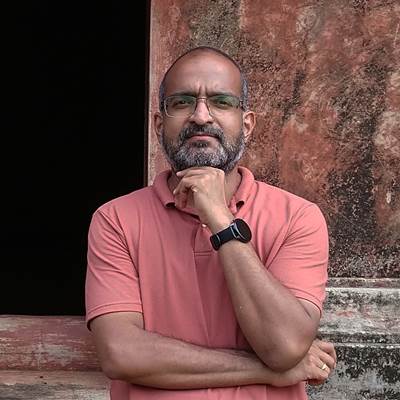Pizza boy, security guard as decoys, how police in Pune busted IPL betting rackets, arrested 53
The two cases were among 12 raids conducted by the Pimpri Chinchwad and Pune City police teams during the latest IPL season that led to 53 arrests
 To crack down on the alleged racketeers, police employed a string of tactics — from going undercover to sending a decoy — to bust the racket that, in several cases, was being run out of apartments in plush residential societies.
To crack down on the alleged racketeers, police employed a string of tactics — from going undercover to sending a decoy — to bust the racket that, in several cases, was being run out of apartments in plush residential societies. * On a hot April evening, as an Indian Premier League (IPL) match airs live, a pizza delivery man knocks on the door of a flat in suburban Pune.
* Another April night, in the midst of another IPL match, a guard knocks on the door of another suburban Pune flat. He tells its occupants their car is leaking oil.
The occupants of the first flat had not ordered any pizza, and there was no oil spill in the second case. The delivery boy and the security guard in these cases had been sent by police teams waiting to crack down on suspected betting rackets operating from these flats during the Indian Premier League (IPL) matches that were held between March 31 and May 28.
The two cases were among 12 raids conducted by the Pimpri Chinchwad and Pune City police teams during the latest IPL season that led to 53 arrests — arguably the highest in one season by the two neighbouring urban police jurisdictions of Pune. To crack down on the alleged racketeers, police employed a string of tactics — from going undercover to sending a decoy — to bust the racket that, in several cases, was being run out of apartments in plush residential societies.
Pimpri Chinchwad Police Commissioner Vinoy Kumar Choubey said: “While IPL betting is illegal under provisions of the Prevention of Gambling Act and the Telegraph Act, its social implications are far more serious. Many criminal elements are connected with these betting rackets. During the latest IPL season, our investigation teams worked meticulously on cultivating sources and conducted multiple coordinated raids. The stringent action against cricket betting and other forms of gambling will continue in the coming days.”
Investigators who led teams from Pune City and Pimpri Chinchwad said almost 80 per cent of the people arrested – or 40 of the total 53 arrests – are businessmen from Pune and outside, mostly aged between 25 and 50. Those from outside, including from places outside Maharashtra, had specifically flown to Pune to run betting rackets, an officer from Pune City police said.

An officer who investigated one of the betting rackets said that among those arrested were people from Chhattisgarh, Bihar and Punjab and also from places outside Pune – Mumbai and Nashik, among others.
“Our probe suggests that these suspects, many of them with prior criminal records in their native places, came to Pune, where they have associates,” the officer said.
Investigators said that in most of the cases, the suspects operated from apartments in upmarket residential societies. Investigations have revealed that almost all the arrested persons acted as bookies who received bets from people and further placed them on the online betting platforms, mostly hosted outside of India.
Deputy Commissioner of Police (Crime), Pune City Police, Amol Zende, said, “One of the key commonalities is the use of phone-based applications by the suspects. In all our raids, we seized cellphones and laptops which were being used by the suspects to run betting applications.”
Explaining the modus operandi, a police inspector from Pimpri Chinchwad Police said, “The people who act as bookies open their bookie accounts on online international betting platforms. Generally a bunch of these bookies operate from flats in plush housing societies, which they rent for short periods. There have also been occasions when groups of these bookies have operated from villas or rooms in resorts at tourist places in and around Pune. These bookies generally have their own set of clients who place bets with them.”
The inspector said that while the process of receiving bets from people and placing them on platforms takes place online, bookies prefer to operate together from one place “because they can then share resources and help each other in keeping tabs. Sometimes when one bookie is flooded with bets, he takes help from another”.
The officer added, “The people placing bets can see rates of ‘lay’ and ‘back’ bets on the phone-based apps. ‘Back’ is when a person bets on something happening and ‘lay’ is when the wager is on an event not happening. These apps and websites have high-end computer programmes that decide betting rates. The bets are placed on a range of things. A team winning and losing, a team reaching a specific score at a specific stage of the match, a batter and bowler reaching a specific score or taking a certain number of wickets, a six or four, or wicket in an over etc. There are even bets on the toss. Now, people who place bets with a specific bookie place their money on multiple happenings during a match. Depending on the outcome, these people owe bookies some money or the other way round. These payments are done mostly in cash to make sure that there are no trails. These cash settlements often lead to disputes.”
The 12 raids carried out by the Pimpri Chinchwad Police have brought to light names of at least seven online betting platforms. “Most of these sites are hosted outside India and often in multiple international locations. Primary information suggests that the main operators of these platforms are based in Europe and the Middle East. Possibility of hawala rackets for international funds transfers cannot be ruled out,” an officer said.
Investigation in two of the cases has also revealed that the bookies were making use of a phone-based application in which the telecast of the match was seen a couple of minutes ahead of the telecast on television.
Another officer said, “The bookies are very cautious in their operations. They never use their registered phone number and keep changing their contact details. They also keep changing their location. We have come across cases of bookies offering a line of credit for people to place bets, literally funding their gambling addiction. These loans are later recovered with very high interest rates — often using pressure tactics and muscle power.”




































